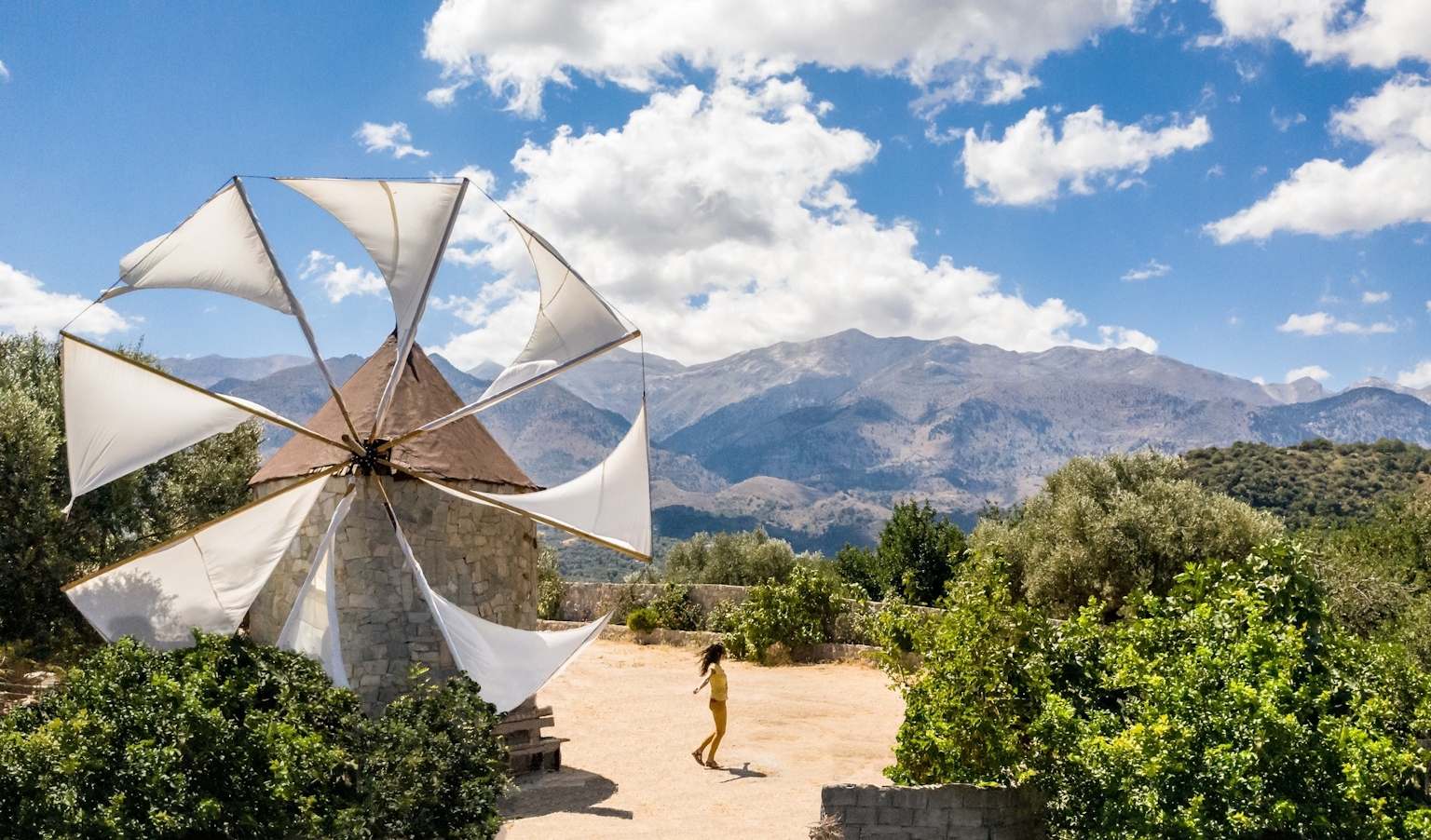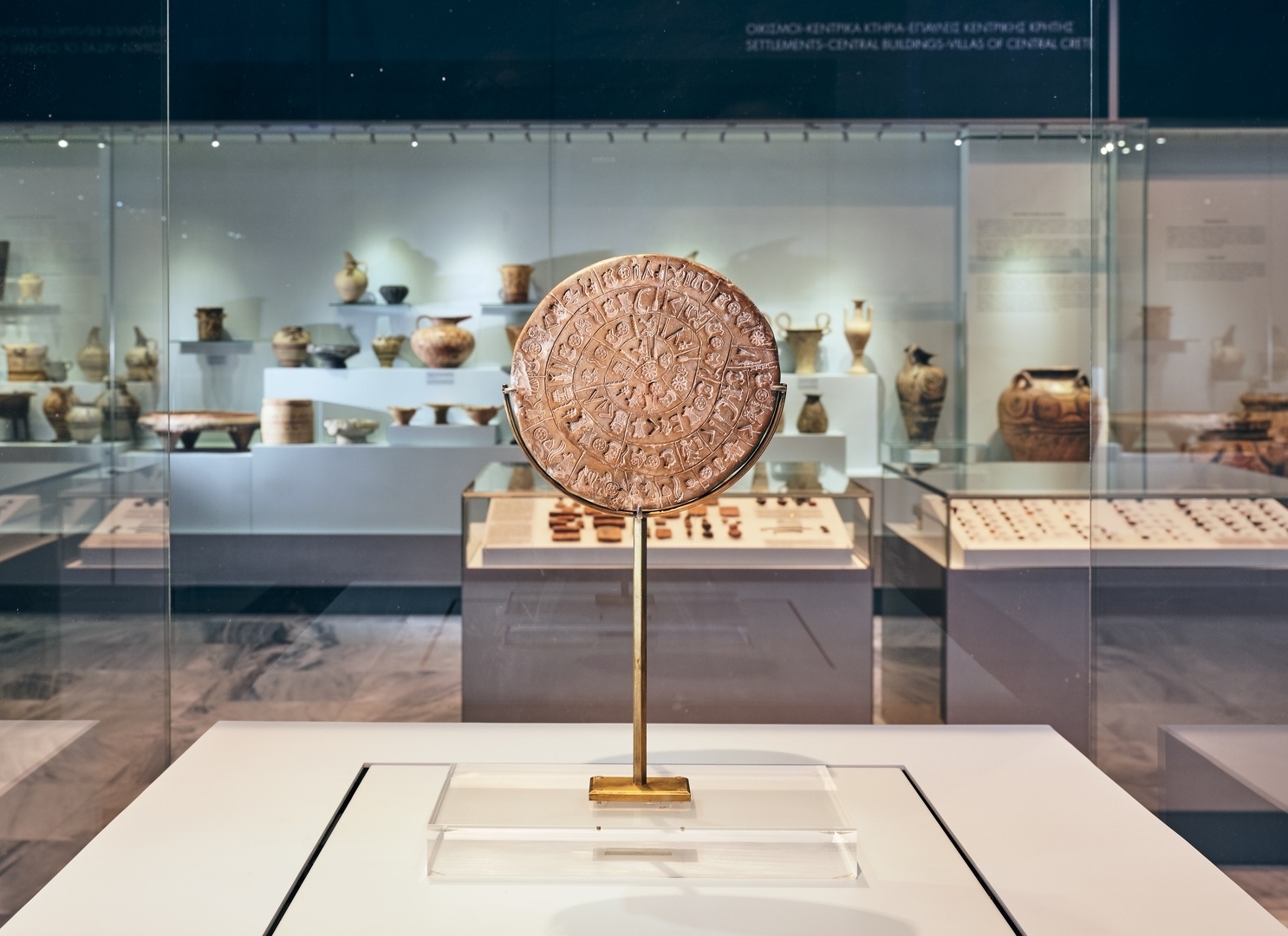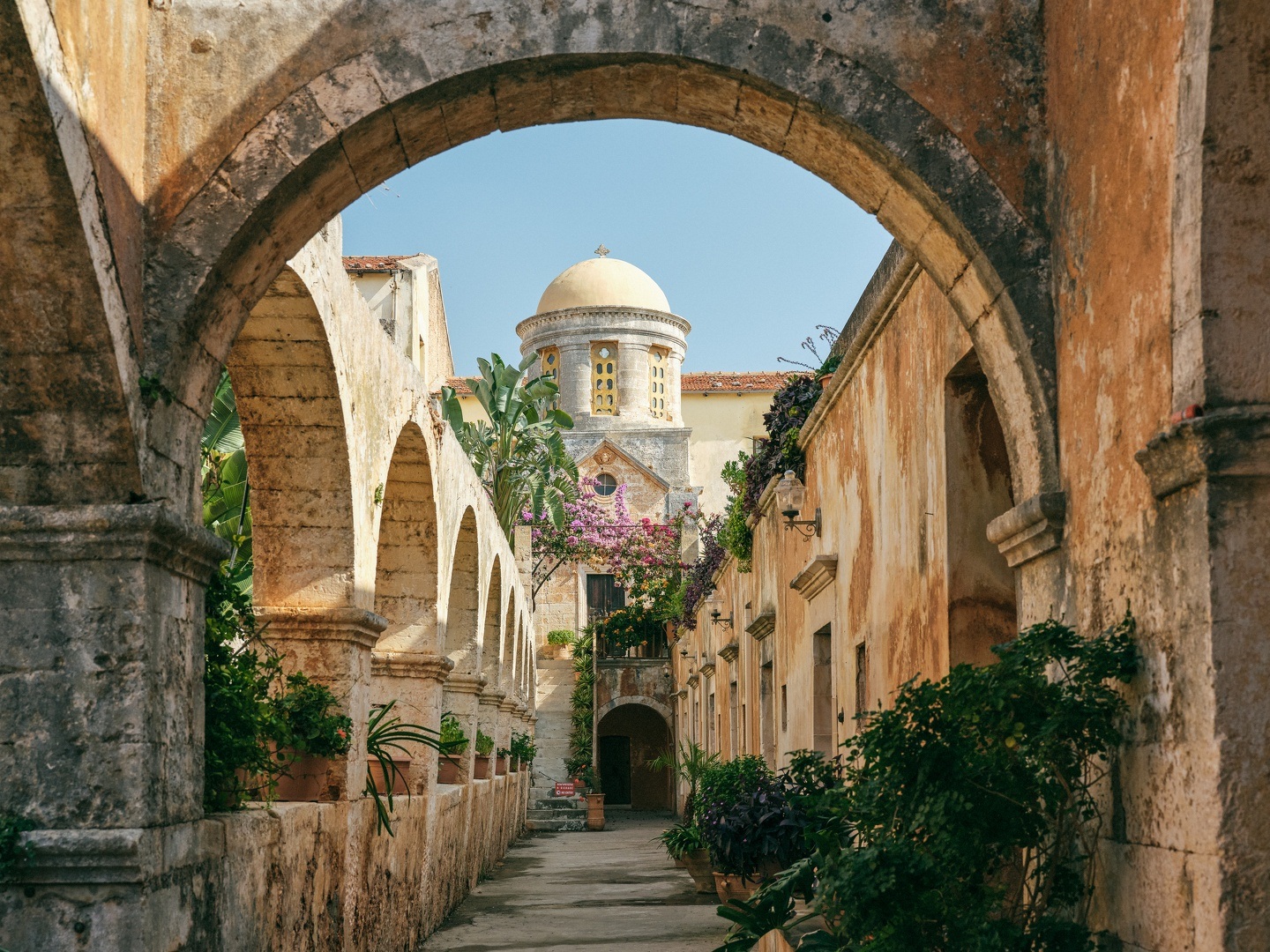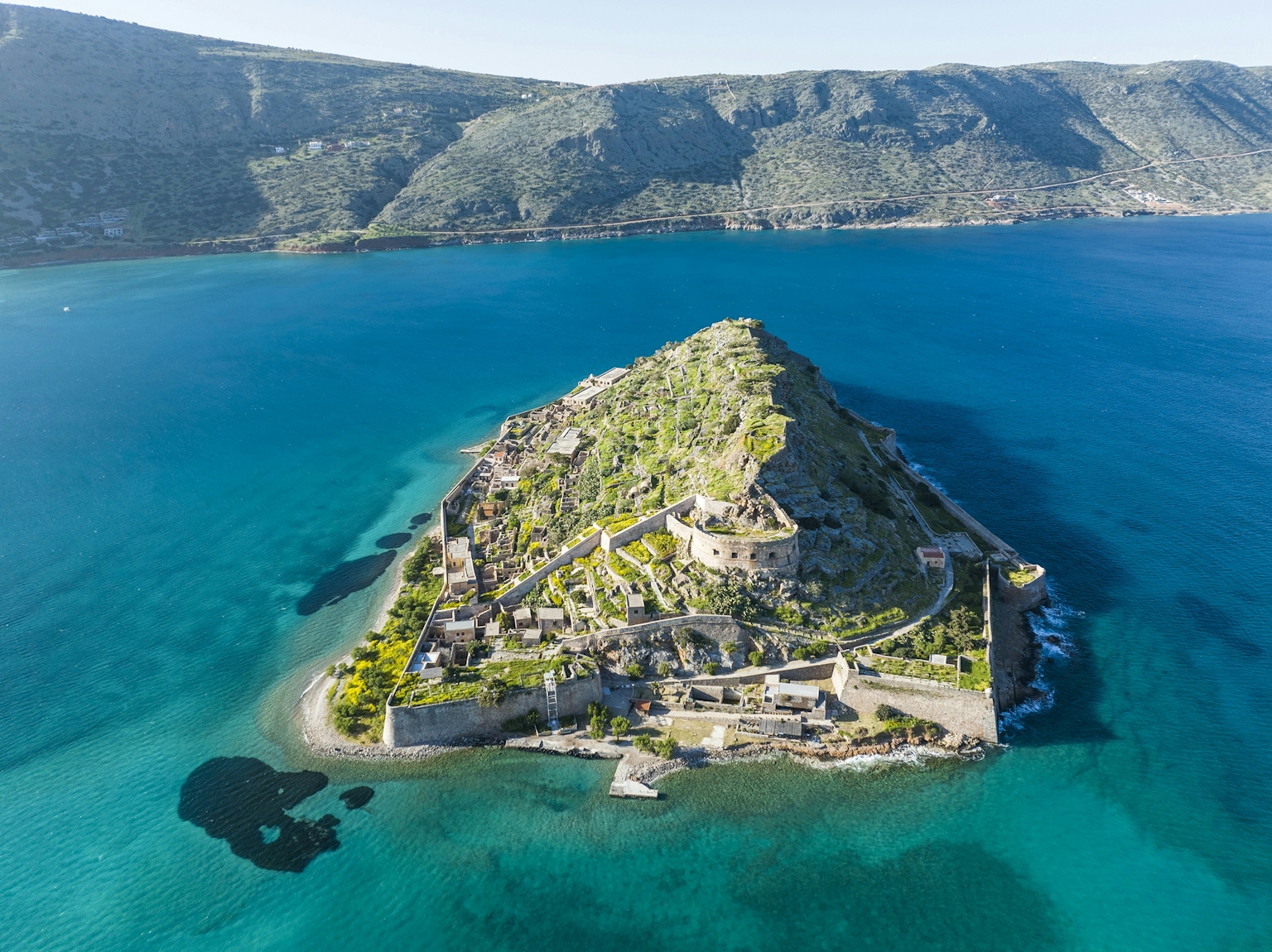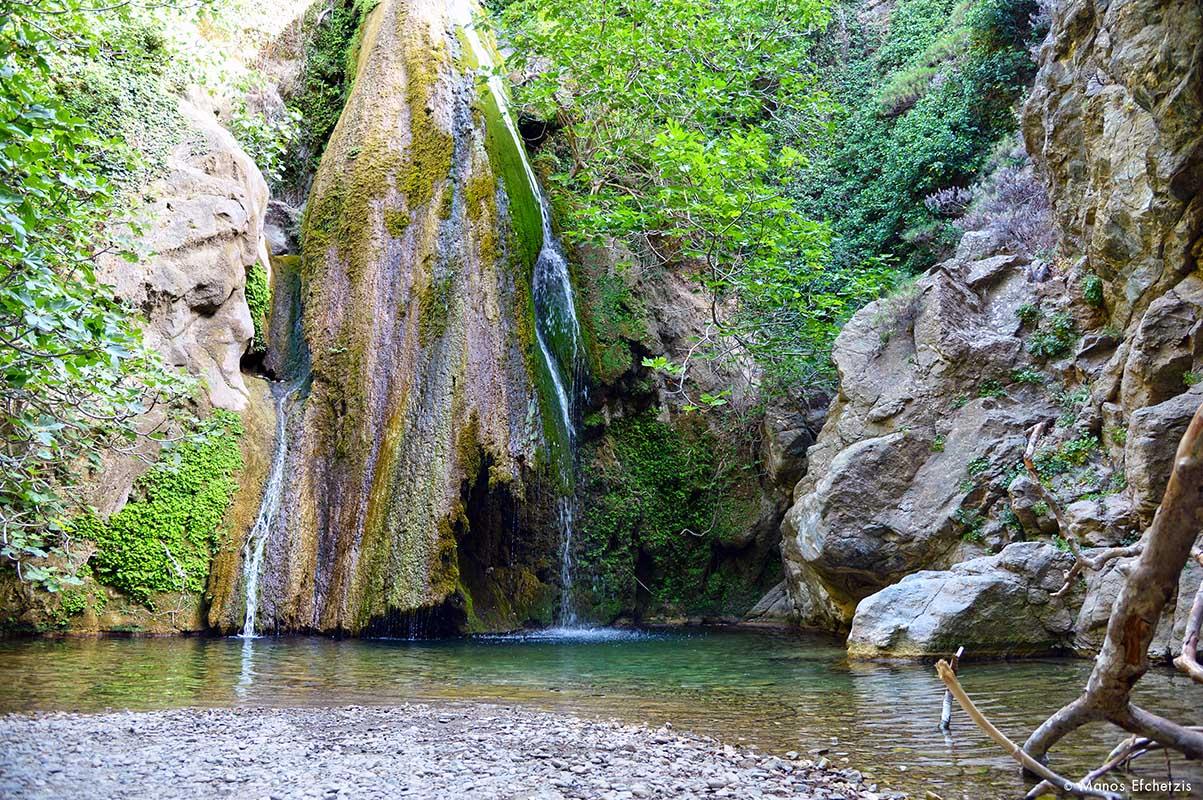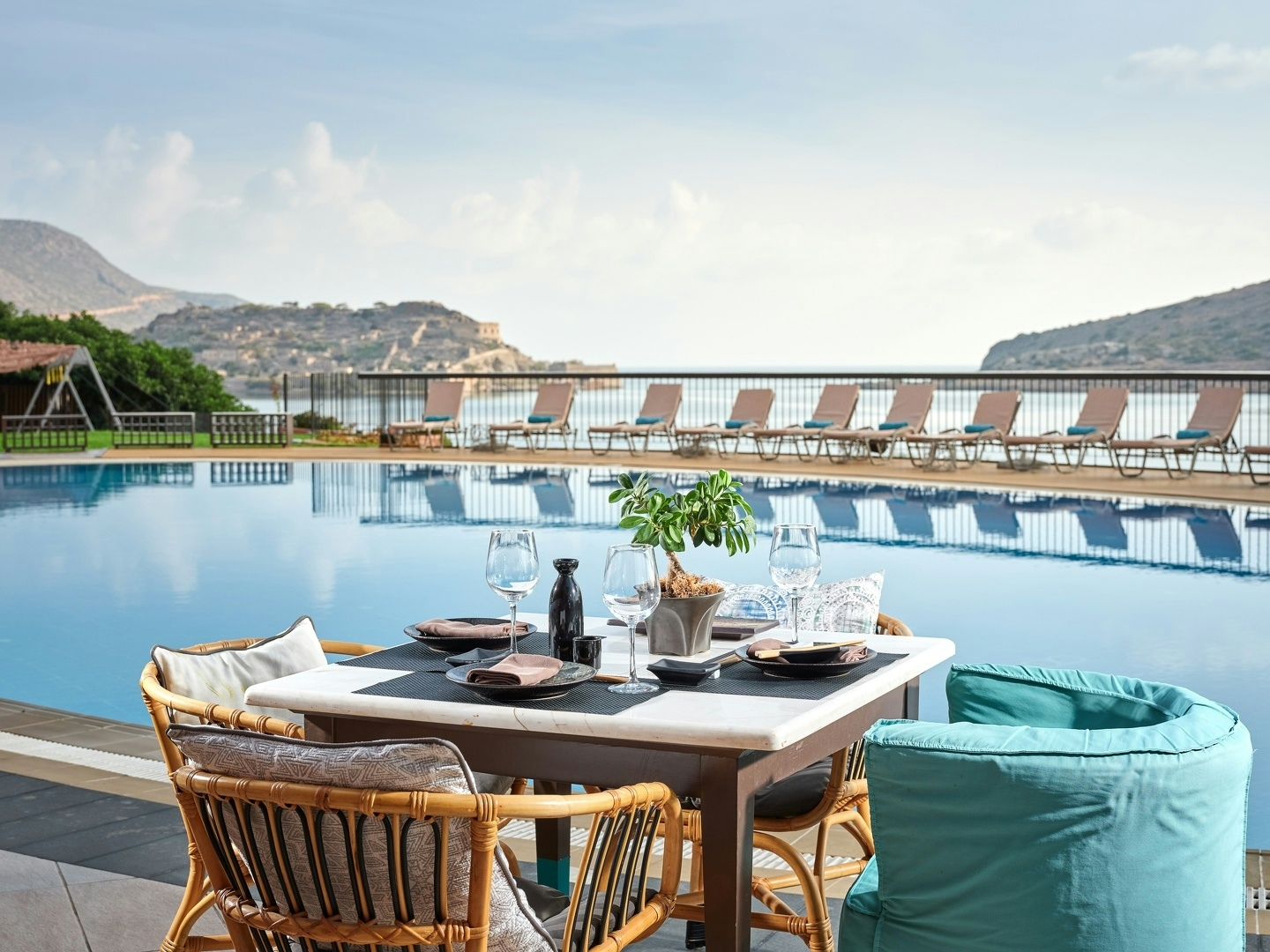The Rokka Festivals Return Under the Full August Moon in 2025!
Author Discover Crete
Culture
Culture

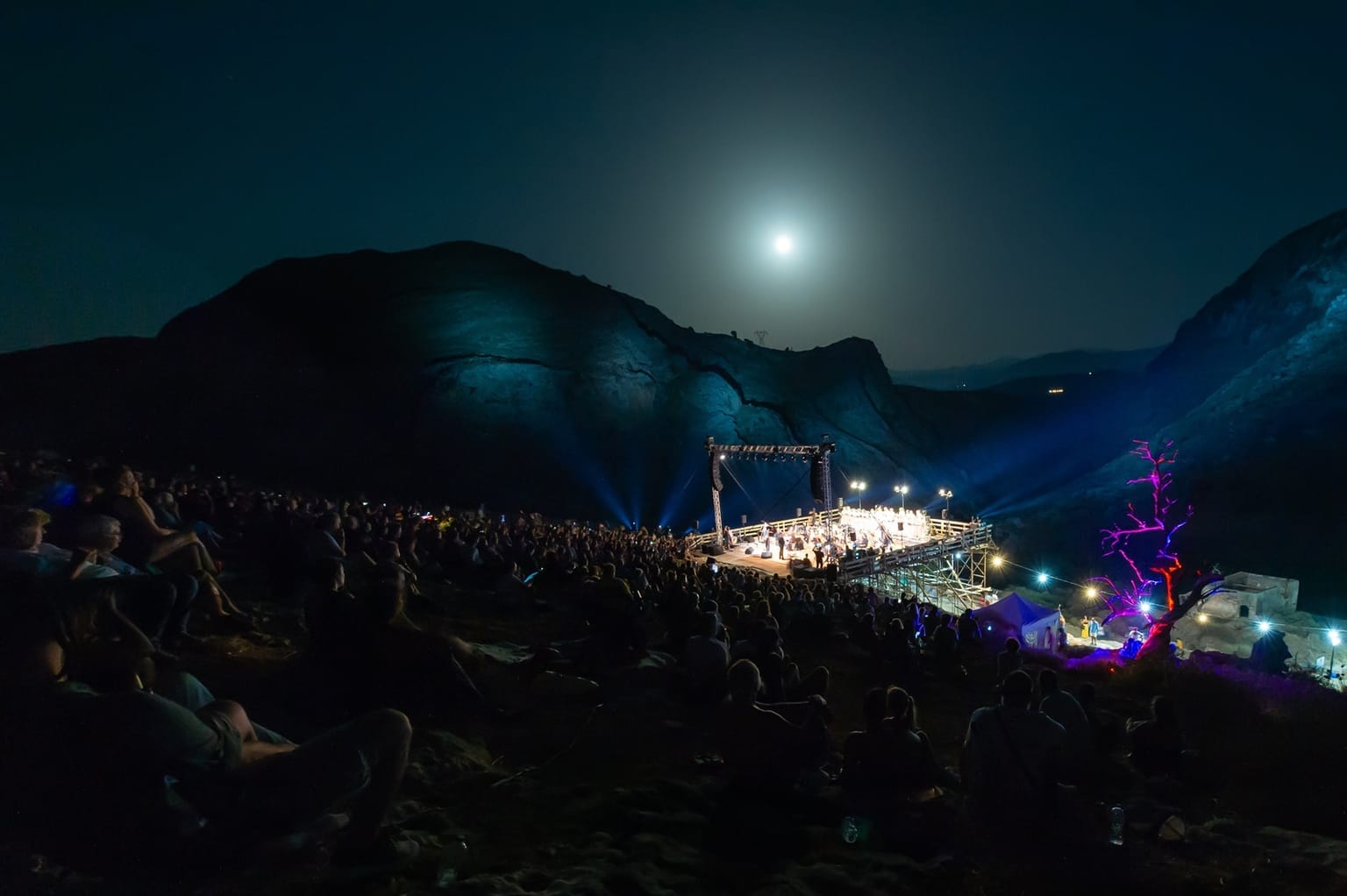
On August 9, 2025, at the Archaeological Site of Rokka, the event “Unseen Symphonies” brings the spirit of the Rokka Festivals to life once again.
The Rokka Festivals were born from a promise — that art can take root in a place, breathe its air, and return to its people in new forms, with an ancient soul.
Since 2013, Rokka and Kera have become the stage for a cultural miracle unfolding far from the big cities and the expected. In a gorge filled with mystery and awe, beneath the Cretan sky, tradition meets contemporary creation, and symphonic music converses with the wind, the cypress trees, and the stillness of the night.
The “Rokka Symphony Orchestra” is an idea that gained shape and sound. A vision that dared to imagine the grandeur of symphonic art in a place that never expected it — but embraced it as its own secret.
With a dynamic ensemble that changes each year, the orchestra is joined by distinguished artists performing in villages across Kissamos and Chania, leaving a deep cultural imprint. Through the collaboration of local and international musicians, it promotes the exchange of experience and technique, while also shedding light on the hidden aspects of artistic creation: preparation, devotion, and the collective power of art.
This year, under the August full moon, the orchestra presents a program that merges the traditions of Scandinavia and Greece, promoting the idea of coexistence and peace. Conducted by Luca Gliozzi, the repertoire includes works by Verdi, Stenhammar, and Dvořák, with a special highlight: the performance of Mikis Theodorakis’ Piano Concerto No. 1 by Konstantinos Papadakis, a highly symbolic tribute to 2025 as the Year of Mikis Theodorakis.
Its Story
Since 2013, the Rokka Festivals have gone beyond expectations, blending tradition with contemporary expression. From creating original events to collaborating with major institutions like the Greek National Opera, the festival proves that art in the Cretan countryside can be bold, modern, and deeply moving.
A defining moment of the festival is the initiative by Panagiotis Simandirakis (President of the Organizing Committee), Maestro Luca Gliozzi, and pianist Konstantinos Papadakis to create and establish the Rokka Symphony Orchestra — a musical ensemble aiming to become a permanent cultural institution with international scope.
The core idea is to reintroduce symphonic music to the wider public. As a deeply expressive and narrative form of art, it has the power to touch people regardless of age or musical education — all it needs is the chance to be experienced. And the Rokka Festivals offer exactly that: a chance to hear symphonic music outside of city concert halls, under the stars and among the Cretan hills.
The Rokka Symphony Orchestra bridges sound and landscape, creating a unique cultural blend where international musical excellence meets nature, history, and the soul of Crete, uniting cultures and traditions.


Its Vision
The Rokka Symphony Orchestra aims to be a modern platform for emerging, highly skilled and talented musicians at a pivotal stage in their careers.
Its size will adapt each year based on the program and repertoire. Renowned artists who join the festival will also perform pre-concert appearances in the hinterland of Kissamos and Chania, deepening the festival’s musical legacy.
Artists from around the world will share ideas, techniques, and traditions with local musicians and young performers, sparking new artistic creation and inspiring future steps.
This orchestra seeks to bring to light all the things that usually remain unseen: preparation, experience, talent, devotion, and the power of collective expression.
BIOGRAPHIES
Luca Gliozzi – Conductor
Described by the late Aldo Ciccolini as “an artist we will hear much about in the future,” Luca Gliozzi is an Italian conductor and pianist gaining steady recognition across Europe.
In recent years, he has worked with major orchestras like the Gävle Symphony Orchestra, Norrköping Symphony Orchestra, Norrlandsoperan Umeå, Västerås Sinfonietta, Berlin Sinfonietta, Beogradski Simfonicari, and the Vienna Opera Festival Orchestra.
He has also served as assistant conductor to Ryan Bancroft with the KMH Symphony in Shostakovich’s Symphony No. 10, and to Nikolas Nägele for Rossini’s The Italian Girl in Algiers during the 50-year anniversary of Norrlandsoperan.
He took part in masterclasses with Jukka-Pekka Saraste, conducting the Swedish Radio Symphony Orchestra, and was recently awarded the Nationellt Stipendium för Dirigering by the Royal Swedish Academy of Music.
As a pianist, he has performed in prestigious venues such as Wigmore Hall, St Mary’s Perivale, Farley Music Festival, Società Umanitaria dei Concerti in Milan, Sale Apollinee at Teatro La Fenice in Venice, Festival Pontino di Musica, and Lievito in Latina.
He studied at the Conservatorio “Ottorino Respighi” in Latina, graduating with honours under Daniela Caratori, then earned a first-class degree at the Royal Academy of Music in London with Rustem Hayroudinoff, followed by postgraduate studies with distinction at the Royal College of Music under Dina Parakhina. He recently completed a master’s in conducting at KMH Stockholm under B. Tommy Andersson.
Konstantinos Papadakis – Piano
Konstantinos Papadakis, born in 2002, is a rising pianist from Greece.
He is currently pursuing undergraduate piano studies at the Royal College of Music in Stockholm (KMH) with Professor Anders Kilström, while also completing an Artist Diploma at Schola Cantorum in Paris under Tamás Vesmás.
He began his musical journey at the Venizelio Conservatory of Chania, earning his Piano Diploma under Thetida Nikolopoulou. He received his first in-depth artistic guidance from Dimitris Mimides, who played a key role in shaping his musical identity.
Papadakis is known for a style marked by deep introspection, spiritual focus, and sensitive interpretation.
He has performed in chamber concerts, orchestral ensembles, and solo recitals in Greece and Sweden, interpreting works by Bach, Beethoven, Rachmaninov, Chopin, Schumann, Liszt, and Messiaen.
He has also benefited from working with acclaimed artists such as Nikos Zafranas, Vassilis Varvaresos, Johan Fröst, Peter Nagy, and Stefanos Thomopoulos, among others.

